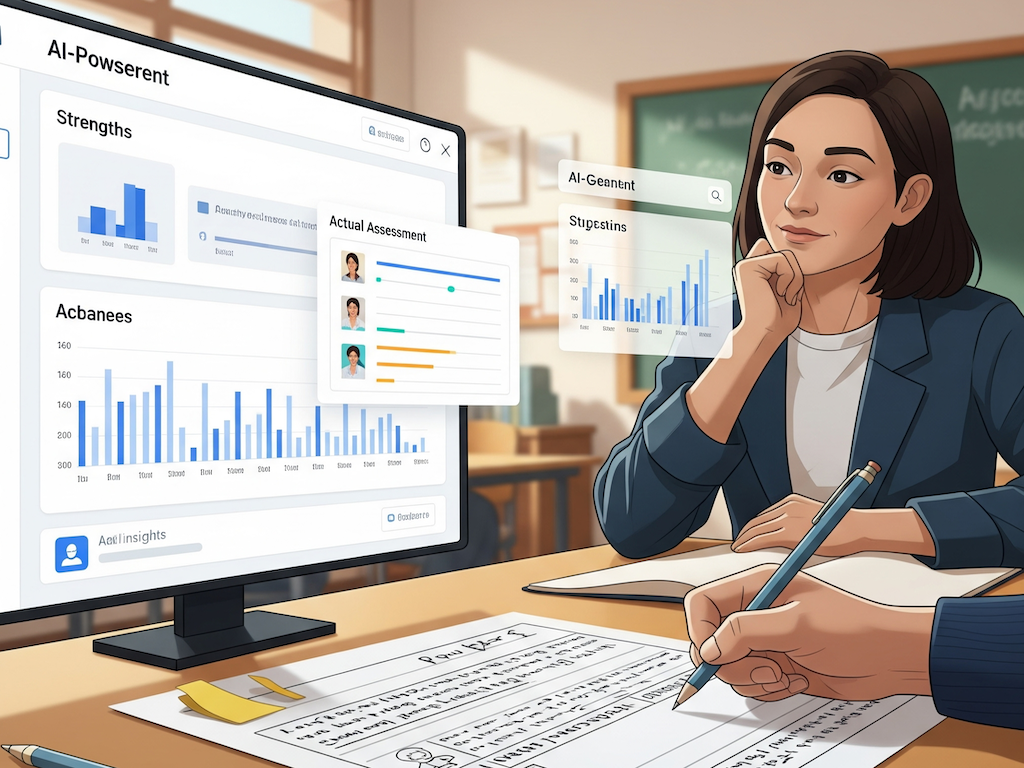
Homework and Public Education in the Age of AI
As AI tools rapidly enter classrooms and homes, we find ourselves at a turning point in how we think about education. AI has the potential to transform how children learn—making education more personalized, more efficient, and more engaging. But it also challenges long-standing assumptions about what school is for, and what homework is meant to teach.
In particular, we face a paradox: AI can help students do their homework more easily than ever—but that doesn’t mean they’re actually learning. So what is the future of homework, and how must public education evolve?
The Traditional Role of Homework
Homework has long served several educational purposes. It reinforces lessons from the classroom, provides additional practice, and allows teachers to gauge a student’s grasp of material. But beyond academics, homework teaches important life skills: managing time, meeting deadlines, and developing a sense of personal responsibility. In many ways, the habits built through nightly assignments are as valuable as the knowledge they aim to reinforce.
However, this model is built on the assumption that students must work independently to solve problems or articulate their thinking. That assumption is now being tested.
AI Makes Traditional Assessment Obsolete
With the widespread availability of tools like ChatGPT, students can now generate essays, solve math problems, and complete comprehension exercises with minimal effort. While this might seem like a shortcut or even cheating, it more accurately reveals a deeper flaw in the traditional homework model: it assesses outputs, not understanding.
If AI can produce correct answers without the student engaging in the learning process, then the assignment isn’t effectively measuring learning. In response, education systems must move toward more sophisticated and meaningful forms of assessment. AI itself can help here. It can evaluate how a student solves a problem, what steps they take, where they get stuck, and how they improve over time.
This shift—from grading results to understanding processes—will make learning both harder to fake and more accurate in evaluating true comprehension.
The Deeper Value of Homework: Responsibility
Even if AI renders traditional academic homework less relevant, that doesn’t mean we should discard it entirely. Homework has always had a second, equally important purpose: developing non-academic life skills.
When students are asked to complete work on their own time, they must learn to prioritize tasks, manage distractions, and follow through on commitments. These experiences help form the foundation of personal responsibility and self-management.
Losing this aspect of homework would be a mistake. Instead, we should think about how to preserve it, even if the content and structure of homework changes.
A New Model for AI-Supported, Responsibility-Focused Homework
In the era of AI, homework should evolve into a tool for fostering growth and maturity—not just academic achievement.
One promising path is to assign more open-ended, project-based work. Rather than completing rote tasks, students could be asked to research a topic, build a portfolio, or create something original. These assignments can incorporate AI tools, but still require personal decision-making, creativity, and reflection.
We should also teach time management explicitly. With the help of AI-based planners and habit trackers, students can learn to structure their time, set goals, and reflect on their progress. These tools can offer guidance while reinforcing autonomy.
Moreover, educators and parents should shift their attention from completion alone to learning behaviors. An AI dashboard might reveal whether a student revisits materials, seeks help, or stays on task. These behaviors are more meaningful indicators of responsibility and engagement than a grade on a worksheet.
The Enduring Role of Public Schools
Even with the rise of AI and more flexible learning environments, public schools will remain essential—especially for working parents. Schools offer structure, socialization, and safety. They provide a daily routine, a sense of community, and a place where children can develop not just intellectually, but emotionally and socially.
As education becomes more individualized and technology-driven, the school’s role will shift from content delivery to mentorship, guidance, and community building. Teachers will spend less time correcting papers and more time helping students grow as thinkers, collaborators, and people.
Moving Forward: Human Values in a Digital World
AI is not the end of education—it is the beginning of a new era. But this future will only be successful if we rethink the systems we’ve taken for granted, including homework.
Rather than focusing solely on what students produce, we must care about how they learn, how they grow, and how they take ownership of their progress. Homework should be a tool for developing both intellectual ability and character.
Technology will continue to reshape what is possible in education. The real challenge is making sure we use it in service of the human goals that matter most.